International
Argentina launches construction tender phase of mega gas pipeline
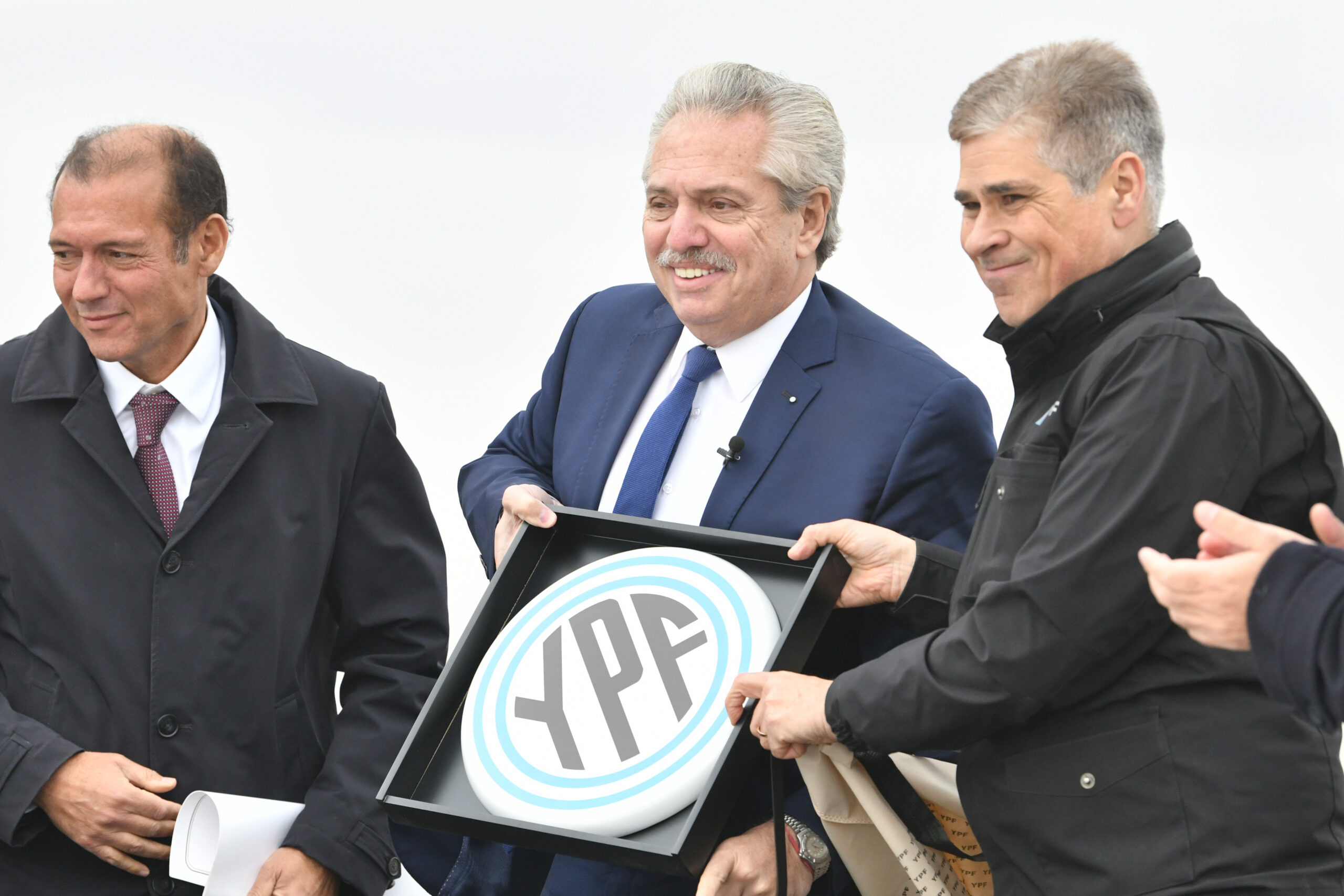
AFP
Argentina on Thursday launched the construction tender phase for a gas pipeline megaproject that will eventually extend more than 1,000 kilometers (621 miles) from the southwest to north of Buenos Aires.
It is the largest natural gas project in Argentina in the last four decades and comes at a time when worldwide energy costs have shot up due to Russia’s invasion of Ukraine.
The tender will be launched in May with a decision due in July.
The first stage of the project is due to cost $1.5 billion, beginning in August and ending in 2024.
In an official ceremony near to the Vaca Muerta pipeline project in Neuquen province, President Alberto Fernandez celebrated “the start of work to create the Nestor Kirchner pipeline.”
The aim of the megaproject is to expand Argentina’s fuel transport capacity for both domestic use and exports.
The first section of the pipeline, named after a late former president, will extend 558 kilometers from Neuquen province to Buenos Aires province.
A second section will extend another 467 kilometers northwards, reaching San Jeronimo.
In total, the new pipeline will increase Argentina’s gas supply by more than 40 million cubic meters a day “supplying urban centers and industry in the center and north of the country and giving the opportunity to export to Brazil and Chile,” the presidency said in a statement.
The Vaca Muerta deposit holds unconventional gas which is harder and more expensive to extract than more conventional natural gas.
The site is being exploited by state energy firm YPF and US giant Chevron.
The US Department of Energy rates the Vaca Muerta field, which extends over 30,000 square kilometers in Patagonia, as the world’s second largest shale gas reserve, and fourth in the world for shale oil.
Extraction from this site has slowed down in recent years due to the fall in the price of crude which made it less profitable due to the high costs of hydraulic fracturing to extract unconventional gas.
International
Two fans killed in gate collapse outside Chile’s Estadio Monumental
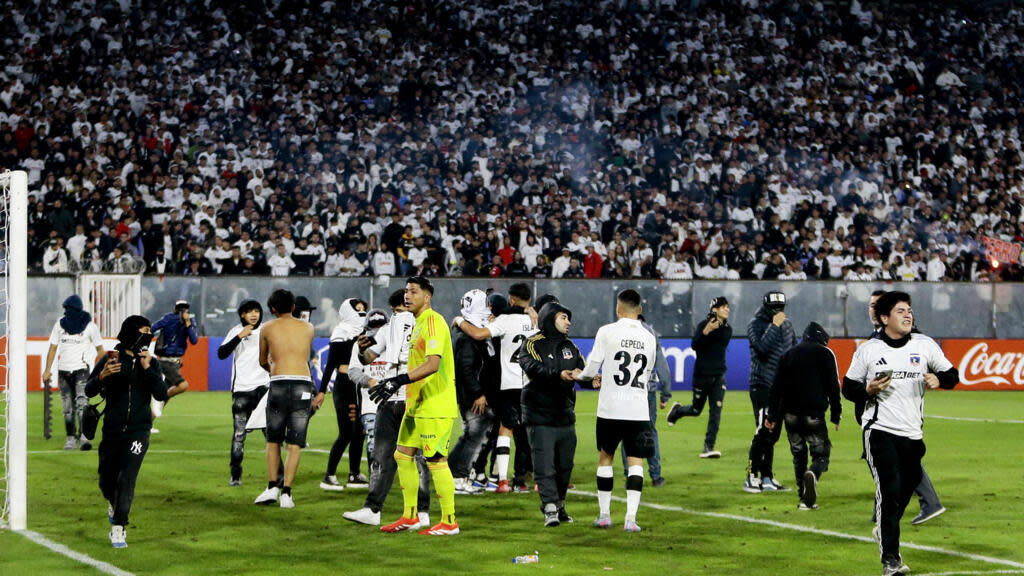
Two people lost their lives near the Estadio Monumental in Santiago, Chile, following a chaotic incident that occurred before the Copa Libertadores match between Colo Colo and Brazil’s Fortaleza on April 10. According to the Public Prosecutor’s Office, the victims were crushed after a fence on the stadium perimeter collapsed, though authorities are investigating whether a police armored vehicle may have played a role.
It was a black Thursday at Chile’s Estadio Monumental. Two local fans died outside the stadium after a yet-unclarified incident caused a metal gate to fall on them, leading to fatal asphyxiation.
Local media reports indicate that a group of fans attempted to force their way into the stadium before kickoff. In response, local police allegedly deployed armored vehicles to block the breach.
Preliminary reports cited by local newspapers and news agencies like EFE identify the victims as two young individuals—one 18 years old and the other just 13.
International
Dominican Republic mourns over 200 dead in Jet Set nightclub collapse
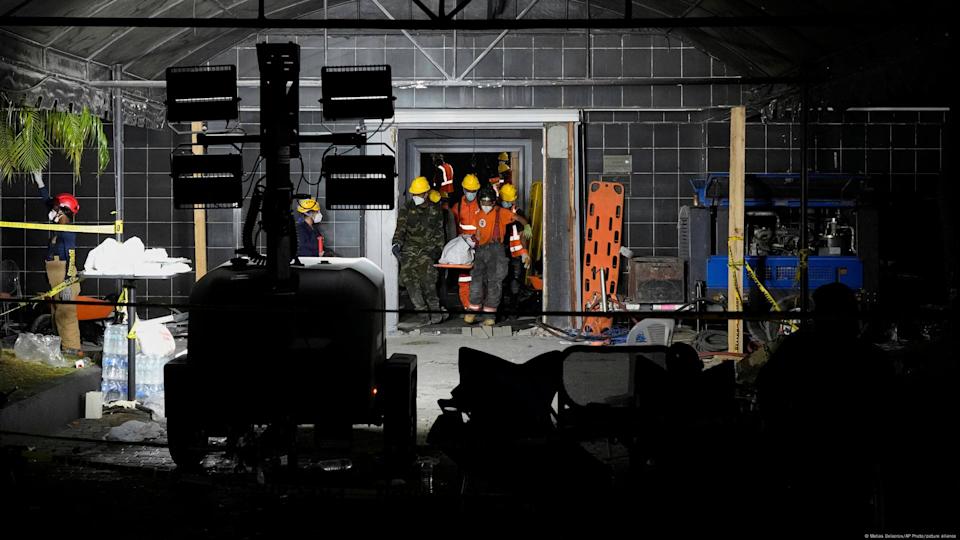
On Thursday, April 10, 2025, the Dominican Republic began mourning the more than 200 victims of the collapse of Jet Set nightclub in Santo Domingo, although many families are still desperately waiting for the remains of their loved ones.
The roof of the Jet Set club collapsed in the early hours of Tuesday, April 8, during a live performance by iconic merengue singer Rubby Pérez.
Rescue workers were completing the recovery of human remains from beneath the rubble of corrugated metal and steel beams, as search efforts ended with no further hope of finding survivors.
Around the morgue, the atmosphere was one of grief, anguish, and despair. A list of the deceased was posted on a canvas covering a nearby tent, where crowds gathered in distress. Health Minister Víctor Atallah stated that forensic teams are working at full capacity and urged patience. “No one will go unidentified, and no one will be left without answers,” he promised. “We will turn over every last stone if we have to.”
The tragic collapse also claimed the lives of several foreigners, including a significant number of Venezuelan nationals who were present at the club, according to local newspaper Listín Diario. The outlet reported the official death toll at 221, which included one Haitian, two French nationals, one Italian, and one Kenyan.
Meanwhile, relatives, friends, and fans of Rubby Pérez released white balloons outside the National Theater shortly before the hearse departed with the remains of the beloved singer, known for hits like “Enamorado de ella” and “Buscando tus besos.” Draped over his coffin were both the Dominican and Venezuelan flags, the latter symbolizing the country where his fame took off.
International
Venezuelan oil shipments resume after tariff-induced delays
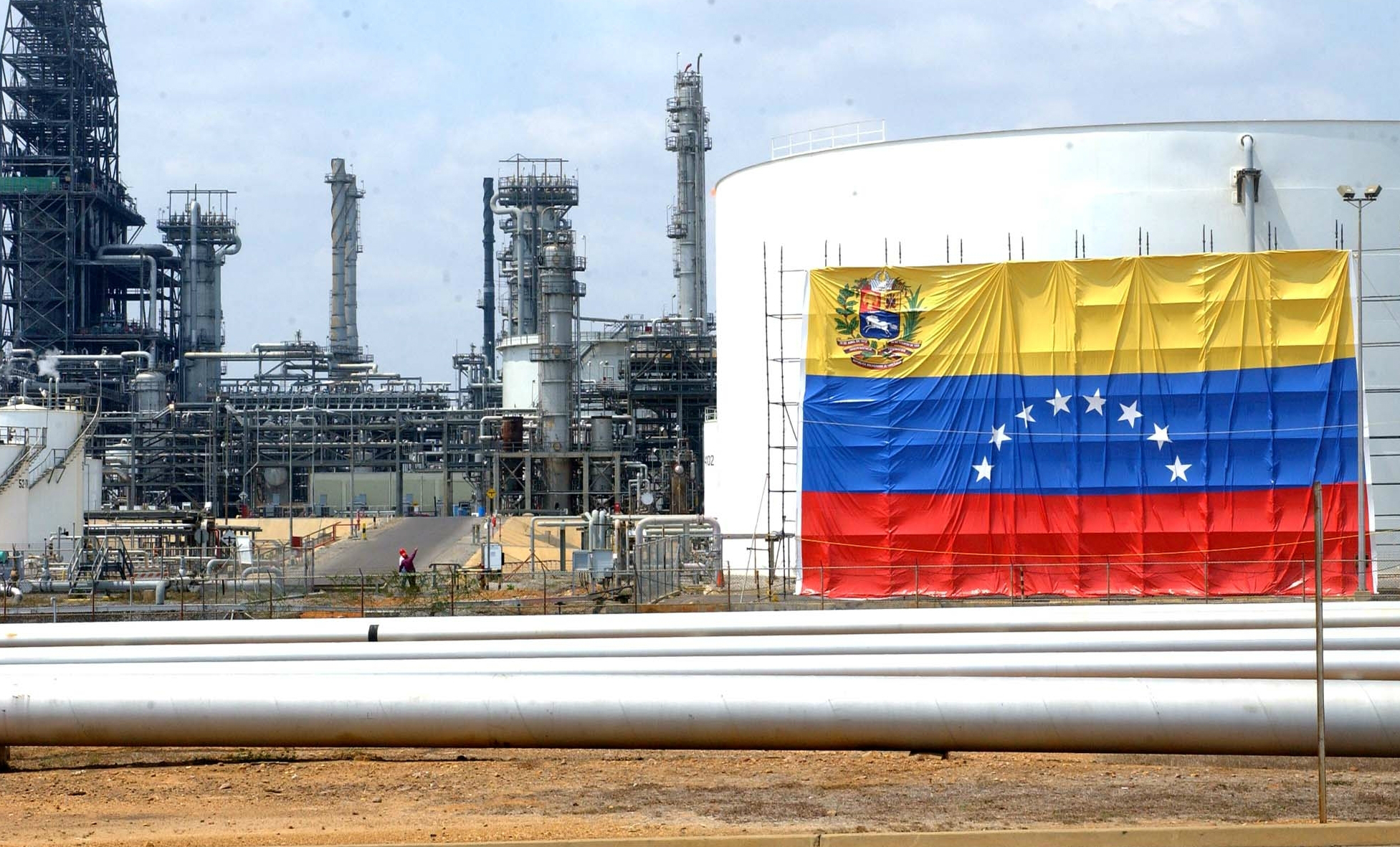
Many buyers of Venezuelan oil have resumed loading tankers after a week of pauses and delays at the country’s ports, caused by tariffs imposed by President Donald Trump on importers of crude from the OPEC member nation, according to shipping data and documents.
In March, the United States gave Chevron and other foreign partners and clients of Venezuela’s state oil company, PDVSA, until May 27 to gradually wind down operations and cease crude exports from the country. Days later, Washington imposed tariffs on buyers of Venezuelan oil and gas.
The measures triggered the suspension of some shipments at the country’s main oil port, Jose, and caused delays at smaller terminals. Many vessels that had left the Jose port and moved away from the coast amid the announcement of the measures have since returned to complete their loadings. In recent days, tankers have begun departing Venezuelan waters en route to destinations such as India and China, according to data and internal documents from PDVSA.
“There was a moment of panic when ships pulled away, but they later received instructions to finish loading,” said a source at PDVSA.
-

 Central America4 days ago
Central America4 days agoHonduras Hosts CELAC Summit Amid Regional Concern Over U.S. Deportations
-

 International3 days ago
International3 days agoRussia and US to Meet in Istanbul for Diplomatic Talks on April 10
-

 Central America19 hours ago
Central America19 hours agoNicaragua seeks ICJ intervention in Gaza conflict amid escalating violations
-

 Central America3 days ago
Central America3 days agoAudit Exposes Major Breaches in Panama Canal Port Concession, $300 Million Owed to State
-

 International4 days ago
International4 days agoTeachers in Southern Mexico Bring Education to Stranded Migrant Children
-

 Central America2 days ago
Central America2 days agoMexico’s president proposes regional economic summit at CELAC
-

 Central America4 days ago
Central America4 days agoMulino and Orsi Highlight Shared Vision After Panama Joins Mercosur as Associate State
-

 Central America2 days ago
Central America2 days agoColombia to host fourth EU-CELAC Summit in November
-

 International2 days ago
International2 days agoMerengue concert turns to mourning as Jet Set collapse claims 136 lives
-

 Central America4 days ago
Central America4 days agoTrump Administration Asks Supreme Court to Block Return of Deported Salvadoran
-

 Sports3 days ago
Sports3 days agoNeymar Returns to Santos Training After Month-Long Injury Layoff
-

 International8 hours ago
International8 hours agoDominican Republic mourns over 200 dead in Jet Set nightclub collapse
-

 Central America2 days ago
Central America2 days agoCELAC condemns unilateral sanctions in ‘Tegucigalpa Declaration’
-

 International3 days ago
International3 days agoMaduro Announces Economic Emergency Decree Amid Growing Tensions with the U.S.
-

 International3 days ago
International3 days agoTransgender Student Arrested at Florida Capitol for Using Women’s Restroom Under New State Law
-

 International20 hours ago
International20 hours agoItalian biologist found dead in Colombia; investigation underway
-

 Central America20 hours ago
Central America20 hours agoU.S. Government says deported migrants should remain in El Salvador for life
-

 International3 days ago
International3 days agoScience Brings Back the Extinct Direwolf with Successful De-Extinction Project
-

 International20 hours ago
International20 hours agoMaduro signs Economic Emergency Decree to counter U.S. sanctions on Venezuela
-

 International8 hours ago
International8 hours agoTwo fans killed in gate collapse outside Chile’s Estadio Monumental
-

 International8 hours ago
International8 hours agoVenezuelan oil shipments resume after tariff-induced delays
-
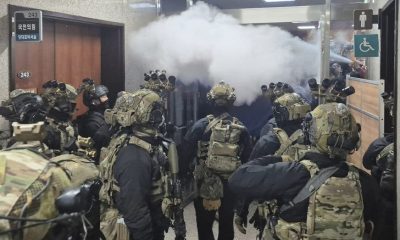
 International8 hours ago
International8 hours agoConstitutional Court Removes Yoon: Lee Jae-myung’s Rise Sparks Warnings of a Radical Shift















